Investing can feel intimidating.
And if you’re feeling nervous, that’s OK. It means you’re mindful of the risks and are approaching the markets with caution.
That being said, there’s never been a better time to get started investing. Today’s brokers and robo-advisors are making it easier than ever for young folks like us to invest confidently with almost any amount of money.
Whether you want to start investing as little as $25 a month or have a windfall of $10k you’re looking to manage, the right account is just a few clicks away. And we’re here to help you determine which one is right for you — so you can take the most important step on your journey to early financial independence: investing your first capital.
But before we get started, some quick FYIs: unless otherwise noted, you can open either a standard, taxable investing account or an Individual Retirement Account (IRA) with any of these platforms.
Also, if you need a quick refresher on what terms like robo-advisor and brokerage mean, check out our FAQs at the bottom of this article.
Now, let’s investigate the best investment accounts for young investors!
What’s Ahead:
- Overview of the Best Investment Accounts for Young Investors
- Wealthfront: Best for Getting Started
- Betterment: Best for Personalized Guidance
- Robinhood: Best for Fractional Investing
- J.P. Morgan Self-Directed Investing: Best for Chase Clients
- TD Ameritrade: Best for Advanced Investors
- Public: Best for Social Investing
- Acorns: Best for Investing Micro Amounts
- M1: Best for Passive Investing
- E*TRADE: Best for Options Trading
- Fidelity: Best for Day Traders
- Vanguard: Best for Investors with $50,000+
- FAQs About Investment Accounts
- The Bottom Line
Overview of the Best Investment Accounts for Young Investors
- Best for getting started: Wealthfront
- Best for personalized guidance: Betterment
- Best for fractional investing: Robinhood
- Best for Chase clients: J.P. Morgan Self-Directed Investing
- Best for advanced investors: TD Ameritrade
- Best for social investing: Public
- Best for investing micro amounts: Acorns
- Best for passive investing: M1
- Best for options trading: E*TRADE
- Best for day traders: Fidelity
- Best for investors with $50,000+: Vanguard
Wealthfront: Best for Getting Started

- Minimum investment: $500
- Trade/account management fees: 0.25% annual account management fee
- Investment options: Pre-built ETF portfolios
- Robo-advisor available? Yes
Wealthfront, which is now owned by UBS, is a solid choice for beginners because it’s low fee, highly automated, only requires $500 to start, and charges a low 0.25% management fee on all balances.
Wealthfront also allows for a fair degree of customization as you become more comfortable with investing. You can add or remove vetted ETFs to and from your portfolio as you wish. You can also choose from categories like Technology ETFs, Healthcare ETFs, Cannabis ETFs, and more.
It can also help you build an entirely ESG (environmental, social, governance) portfolio from scratch so you can rest well knowing your investments are benefitting the world.
Lastly, Wealthfront lets you dabble in crypto, albeit indirectly. You can allocate up to 10% of your portfolio to two different crypto trusts, Grayscale Bitcoin Trust (GBTC) and Grayscale Ethereum Trust (ETHE). You should know, however, that investing in a crypto trust can be just as risky as crypto itself — so be sure to read our complete guide to investing in cryptocurrency first.
Read our full review of Wealthfront.
Betterment: Best for Personalized Guidance
![]()
- Minimum investment: None for Basic, $100k for Premium
- Trade/account management fees: 0.25% for balances under $100k, 0.40% for balances $100k+
- Investment options: Pre-built stock and ETF portfolios (crypto coming soon)
- Robo-advisor available? Yes
Not sure if you want a robo-advisor or a human financial advisor? Why not both?
For investors who want more than an automated portfolio, Betterment offers premium plans that include either annual or ongoing consultations with a team of Certified Financial Planners® and investment experts.
You’ll start with Betterment’s robo-advisor product, which can help you build a healthy, profitable portfolio for a 0.25% annual fee. Later, as you accumulate more wealth, you may decide you want some professional advice on both your portfolio and your savings goals. So, once you reach a $100,000 balance you can hop on Betterment’s Premium plan and gain unlimited access to their CFP® team for advice.
Sure, your annual fee raises to 0.40% — but that’s less than half of the 1% most human advisors charge.
Betterment also offers a no-fee checking account, mobile check deposits, and reimburses your ATM fees.
Read our full review of Betterment.
Robinhood: Best for Fractional Investing
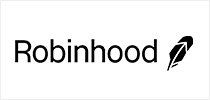
- Minimum investment: $0, $2k for Robinhood Gold (margins, more data)
- Trade/account management fees: None
- Investment options: Stocks, ETFs, cryptocurrency
- Robo-advisor available? No
Ah, Robinhood. We’ve all heard of Robinhood, and for good reason, too. It’s supremely easy to use, rich with beginner-friendly features, and requires just $1 to get started investing.
One of the best things about Robinhood for new investors, though, is its fractional shares. Traditionally if you wanted to buy a share of, say, Microsoft, you’d have to invest a full $270 for one whole share. But with Robinhood, you can simply say “I want $50 worth of Microsoft” and Robinhood will carve a slice for you.
Despite being known as “the platform for newbies,” Robinhood still provides some tasty advanced features. Margin trading, market research, and the Robinhood podcast all give fast learners plenty to chew on so they don’t feel compelled to move onto a more advanced platform too soon.
Read our full review of Robinhood.

- Minimum investment: $0
- Trade/account management fees: None
- Investment options: Stocks, options, ETFs, bonds, mutual funds
- Robo-advisor available? Yes, with Automated Investing
J. P. Morgan Self-Directed Investing is a solid pick for two types of investors.
The first group is existing Chase customers. It’s a good fit for them because you can log into Chase, open a new brokerage account in just a few clicks, and voila — your Self-Directed Investing account will live on your Chase dashboard forever, conveniently wedged between checking/savings accounts and instantly accessible. You can also move money between your other Chase accounts and your SDI account in a single click.
The second group is high-net-worth investors. At the time of this writing, Chase offers the following welcome bonuses based on your initial deposit amount:
- $700 when you fund with $250,000 or more
- $325 when you fund with $100,000-$249,999
- $150 when you fund with $25,000-$99,999
- $50 when you fund with $5,000-$24,999
Lastly, it’s worth mentioning that you can also open an Automated Investing account with Portfolio Builder with a minimum $500 investment.
Read our full review of J.P. Morgan Self-Directed Investing.
Disclosure – INVESTMENT AND INSURANCE PRODUCTS ARE: NOT A DEPOSIT • NOT FDIC INSURED • NO BANK GUARANTEE • MAY LOSE VALUETD Ameritrade: Best for Advanced Investors
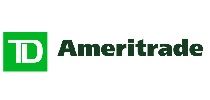
- Minimum investment: $0 for basic, $2k for margin and option trading, $5k for robo-advisor
- Trade/account management fees: 0.30%
- Investment options: Stocks, options, ETFs, mutual funds, futures, forex, bonds, CDs
- Robo-advisor available? Yes, through Essential Portfolios
If you already consider yourself an intermediate or advanced trader, or would like to become more advanced, TD Ameritrade offers a massive toolkit for you to sharpen your skills.
Here are just a few examples of what I’m talking about:
- Web platform: You can access independent third-party research, educational resources, and planning tools, stay up-to-date on the news, and even pull social trading insights from Twitter.
- thinkorswim: This is a professional level trading tool that gives you things like tools to perform stock analysis and test strategies, form ideas with market scans and watch for potential risks and rewards, and utilize onboarding tools like the thinkManual and platform tutorials.
- Mobile trading: You get a selection of device-optimized mobile apps, including the Apple Watch, all of which give you the ability to handle your investments, embrace opportunities, and much more.
- Heat maps: Pinpoint the health of the market by using a visual and intuitive platform.
- Integrated watch lists: Track your investments wherever and however you want with detailed and customized watch lists.
- Live-streaming media: You’ll feel like a professional trader with live-streaming from places like CNBC and the TD Ameritrade Network, for breaking news and other investment-related advice.
- myTrade community: A social platform to share ideas with other investors and get authentic advice from some of the best out there.
And the cost for all this? Nada, in most cases. No commissions, no trade fees, and TD Ameritrade even offers over 300 commission-free ETFs.
Read our full review of TD Ameritrade.
Public: Best for Social Investing

- Minimum investment: $0
- Trade/account management fees: None
- Investment options: Stocks, ETFs, cryptocurrency
- Robo-advisor available? No
Public (formerly known as Matador) offers a more social, interactive, and communal investing experience.
When you sign up for Public and choose a username, you create a Public profile which shows all the stocks/ETFs you are invested in without the specific dollar amounts — a bit like a Venmo activity feed.
If you want, you can explain why you believe in the investment, inviting other Public users to comment, ask questions, and pass along your strategy. Public also facilitates a large community forum where ideas flow freely. You can contribute to the conversation, chat with other investors, like comments, and even emulate the investing strategies of professional traders who regularly engage with the platform.
Aside from the social stuff, Public checks the essential boxes of a modern investing platform (fractional shares, $0 trade commissions, etc.) and also organizes investing ideas into “themes” like Clean and Green or The Future is Female (female-led S&P 500 companies).
Read our full review of Public.
Acorns: Best for Investing Micro Amounts

- Minimum investment: $0
- Trade/account management fees: $3 per month
- Investment options: Pre-built ETF portfolios
- Robo-advisor available? Yes
Looking for help building the habit of saving and investing?
Robo-advisor Acorns looks to strip all the intimidation away from investing and help you build consistent, healthy financial habits. For starters, you can use Acorns Round-Up to automatically round up all of your credit card purchases to the nearest dollar and invest the change for you.
For larger scale investments, Acorns Smart Deposit will automatically debit your checking account and invest a certain amount each month, too.
As for building a portfolio, Acorns operates like a typical robo-advisor — during sign-up it’ll ask you some basic questions about your investing goals, horizon (read: timeline) and your risk tolerance (which we can help you measure).
Then, based on your answers, Acorns will recommend one of five portfolios:
- Conservative
- Moderately Conservative
- Moderate
- Moderately Aggressive
- Aggressive
Pick one, set up Acorns Round-Up and Acorns Smart Deposit, and boom! You’re all set.
Acorns charges $3 a month for a basic Personal account — tantamount to a standard 0.25% advisory fee on an account balance of $14,440.
Read our full review of Acorns.
M1: Best for Passive Investing
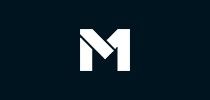
- Minimum investment: $100 for taxable account, $500 for a retirement account
- Trade/account management fees: None (misc. fees for transfers, paper documents, etc.)
- Investment options: Stocks, ETFs, REITs
- Robo-advisor available? Yes
M1 is fast becoming the community’s favorite app for passive investing.
Passive investing involves crafting “lazy portfolios,” i.e., portfolios that need little-to-no active management. They may need the occasional tweaking every six months based on your changing wealth, income, and risk tolerance, but otherwise you can just set ‘em and forget ‘em. It’s like the opposite of day trading, and despite the name, building “lazy portfolios” is a surprisingly profitable investing strategy.
The reason many passive investors like M1 is because of its unique Pie-building tool. M1 “Pies” are investment portfolios made up of “slices.” Each time you deposit cash into your Pie, it gets equally distributed among your slices.
So if you have a tech pie made up of 20% Amazon, 20% Google, and 60% into varios NASDAQ ETFs and you deposit $100, it’ll be split $20 into Amazon, $20 into Google, etc.
In addition to custom Pies you can just copy/paste some of M1’s “Expert Pies” and remove all the guesswork. Later, as your risk tolerance changes, you can task M1 with automatically rebalancing your Pie for you.
E*TRADE: Best for Options Trading
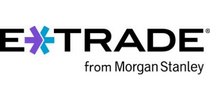
- Minimum investment: $0, but account must stay funded to remain open
- Trade/account management fees: None for trades, 0.30% account management fee for Core Portfolios
- Investment options: Stocks, options, futures, ETFs, mutual funds, bonds, CDs
- Robo-advisor available? Yes, through Core Portfolios
Having been in the game since 1982, E*TRADE has a lot to offer the modern intermediate-level investor. The platform is perhaps best known for its wide variety of account types. Those include, but aren’t limited to:
- Taxable individual and joint brokerage accounts
- Traditional, Roth, SEP, SIMPLE and rollover IRAs and Solo 401(k) plans
- Custodial accounts, trusts, and Coverdell Education Savings Accounts
And investment options include:
- Stocks
- Bonds
- Mutual funds
- Exchange traded funds (ETFs)
- Options
- Futures
- Cryptocurrency trusts
E*TRADE also stands out with options trading. Their Power E*TRADE Platform is one of the best in the industry, offering interactive charts, technical pattern recognition, a snapshot analysis enabling you to evaluate risk/reward probabilities, the ability to run “what-if” scenarios, and a live-action capability where you can scan for unusual options activity, based on above-normal volatility.
Read our full review of E*TRADE.
Fidelity: Best for Day Traders
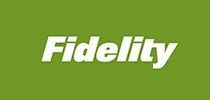
- Minimum investment: $0
- Trade/account management fees: None for trades, none for Fidelity Go accounts with balances <$10k, $3/month for between $10k-$50k, 0.35% annually for balances larger than $50k
- Investment options: Stocks, bonds, ETFs, mutual funds, CDs, options, precious metals
- Robo-advisor available? Yes, through Fidelity Go
We’ve previously called Fidelity “the most comprehensive investment brokerage out there.” You’ll get a bonafide cornucopia of account types, investment options, human or robo-advisor management of your portfolio, educational resources, analytics, and more.
While perhaps intimidating to newcomers, Fidelity’s vast and expansive toolkit combined with low fees make it the perfect playground for aspiring or experienced day traders. It’s worth noting, too, that Fidelity has been around since 1946 and now has $4.5 trillion in assets under management.
Why does that matter to day traders? Because newer, less experienced brokerages can sometimes buckle under intense trading volume. Day traders on a robust platform like Fidelity are less likely to experience such issues when it matters most.
Read our full review of Fidelity.
Vanguard: Best for Investors with $50,000+

- Minimum investment: $50,000
- Trade/account management fees: None for trades, $20 annually for brokerage accounts, 0.30% for VPA accounts
- Investment options: Stocks, bonds, ETFs, mutual funds, CDs
- Robo-advisor available? Yes, through Vanguard Personal Advisor
You may recognize Vanguard as the purveyors of popular high-cap ETFs like the Vanguard S&P 500 ETF (VOO) and the Vanguard Total World Stock ETF (VT).
Now, you don’t need a Vanguard investment account to invest in these ETFs since they’re available for commission-free trading pretty much anywhere other ETFs are. That being said, if you have a minimum $50,000 to invest, you might seriously want a Vanguard investment account.
That’s because $50k is the minimum deposit needed to qualify for Vanguard Personal Advisor — the Rolls-Royce of robo-advisors. You’ll get automatic quarterly rebalancing, free annual checkups, and video calls with Vanguard’s financial advisors to make sure you’re on track for your investing goals (or to help establish them in the first place) — all for a 0.30% management fee.
The cherry on top? Vanguard insures each of its customers’ accounts for $500,000.
Read our full review of Vanguard.
FAQs About Investment Accounts
What is a taxable investing account, aka brokerage account?
A brokerage account is simply a basic account used to buy and sell securities like stocks, bonds, ETFs, etc.
What is a robo-advisor, and is it better than a human financial advisor?
Robo-advisors are AI algorithms that help pick your investments for you, typically based on questions about your goals and risk tolerance. Human advisors do the same and charge more (1% compared to 0.25%), but can help guide you and find your goals in the first place. Both have value; there’s no wrong choice.
For more info, check out Robo-advisors vs. financial advisors: which option is best for you?
How much money should I be investing at my age?
A good starting point is 20% of your income. Don’t be afraid to start small —$100 invested at age 25 with 8% APY will become $1,478.53 by age 60.
Spend a minute tinkering with our compound interest calculator. It’s fun — really!
Should I be choosing my own investments?
If you’re new to investing, it’s best to let your robo- or human advisor do most of the choosing for you. If you’re eager to get hands-on, start with a small slice of your overall portfolio — maybe 5% — to hedge your risk.
The Bottom Line
If you’re looking to get started investing, there are no wrong choices among the investment accounts listed above. Plus, you can always change platforms later.
The most important thing is that you get started investing, period.
Featured image: Prostock-studio/Shutterstock.com


